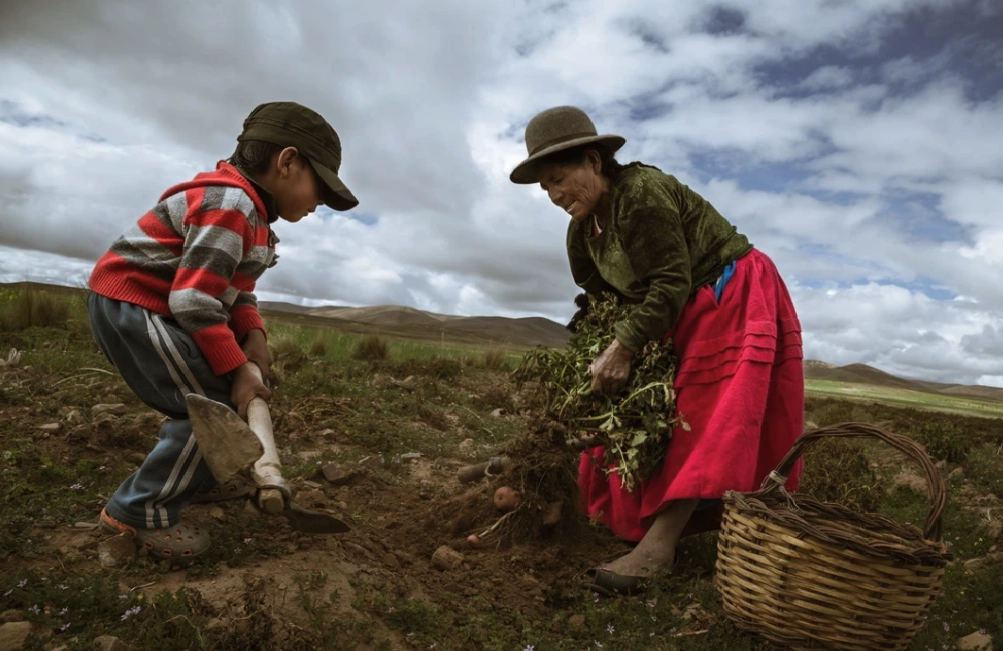In a context of high concentration of income and wealth in the private sector, which poses a great risk to public interests, international cooperation with and between civil society organizations is becoming increasingly relevant. According to the 2022 World Inequality Report, “nations are getting richer, but governments poorer”. Increased poverty is also associated with increased hunger and global warming, with the world’s richest 1% emitting the same amount of pollution as 5 billion people, according to Oxfam. This syndemic that characterizes the current governance of food and nutrition security requires collective responses to health issues (undernutrition, obesity, and nutrient deficiencies), climate change, and the concentration of income and wealth. In addition, the human right to adequate food is very much under threat and violated, going in the opposite direction to food production.
Large private corporations see food as a business. Although harmful, the private sector pursues the sale of ultra-processed products and, to this end, participates in and influences multilateral spaces linked to this agenda, such as the Food Systems Summit in September 2021.
This logic is also part of the crisis of the multilateral system and states. With the growing liquidity crisis in the UN system, mainly due to a lack of contributions from states, the private sector has become a “partner” at the negotiating table and a source of resources for implementing projects, despite serious conflicts of interest.
In this sense, South-South cooperation can be a strategic mechanism for defending healthy and sustainable food as a human right and a public good. Also, it is important to recognize that in the Latin American and Caribbean region, South-South Cooperation has been a form of articulation between different social movements and civil society organizations. Since the beginning of the 21st century, there has been great dynamism in the participation of blocs of countries — the social summits. Concerning the Food and Nutrition Security agenda in particular, this cooperation is expressed in the Civil Society and Indigenous Peoples Mechanism (SCIPM), which brings together various social actors for collective action with the UN Committee on Food Security (CFS).
Civil society organizations in South-South cooperation
In practice, international cooperation takes place as much between peoples, countries, and intergovernmental organizations as it does between societies (and nations). This implies recognizing that South-South Cooperation also serves to articulate resistance among civil society organizations in the Global South.
As for Brazil’s experience with Food and Nutrition Security, we can mention the resumption of the National Food and Nutrition Security Council (CONSEA) in 2023 as a consultative body supporting the federal executive government in drawing up action frameworks (National Policies and Plans) and implementing the National Food and Nutrition Security System.
Civil society in South-South Cooperation initiatives has been greatly boosted by progressive governments in the region, and in times of setbacks, it becomes a guarantee that struggles and initiatives to promote Food and Nutrition Security remain active. From the ‘pink wave’ to the commodities boom, there was a growing involvement of civil society in government policies. After this period, many cooperation projects continued to be carried out even without the participation of the countries.
There is, however, a permanent challenge and demand to guarantee formal spaces with budget allocations for effective social participation in multilateral discussions led by states.
Regional governance of food and nutrition security
Considered a region made up of countries dedicated to agricultural exports — the “breadbasket” of the world — the Food and Nutrition Security agenda is a priority for peoples and governments. Especially since the region is also characterized by a high concentration of land, fertile soils for food production, and the presence of minerals. So, we have moved from the condition of slave labor-intensive “colonies of exploitation” to an environmental and mineral extractivism unprecedented worldwide.
In international relations, the use of the word governance arises in the context of stimulating neoliberalism. A minimal state would operate by outsourcing public services and goods with the support of the private sector and non-governmental organizations. The Sustainable Development Goals (SDGs) thus began to stimulate the idea of a multi-sector, multi-level (from local to global), and multi-actor action plan, including public-private partnerships. Going beyond regional strategies designed for global and regional trade, Latin American and Caribbean countries are faced with the need to defend family farming and their food sovereignty.
Against the environmental degradation caused by agribusiness, deforestation, and the invasion and titling of lands belonging to indigenous peoples, quilombola, and traditional communities, the need for Food and Nutrition Security policies and strategies is on the agenda, as they are a guarantee for the human right to adequate food, biodiversity, and conservation units. In addition, the growing production for the foreign market with the export of commodities is reducing the area of food production based on the different food cultures in the countries. This, coupled with the commodification of dietary staples, results in surges in inflation and a consequent increase in food insecurity. We therefore also need to focus on the trade agenda and food supply strategies.
The networking of civil society organizations is becoming increasingly important in the face of the growing power of the private sector. South-South cooperation is becoming more important in order not to allow setbacks in various global agendas of public interest, especially in the fight against hunger, poverty, environmental destruction, and human health, along with cultural diversity and biodiversity.In Brazil, CONSEA has sought to insert itself and contribute to effective social participation in international cooperation initiatives. In December 2023, it organized a meeting with leaders of governments and societies, ahead of the 6th National SAN Conference, to discuss the democratic governance of food and nutrition security for the realization of the human right to adequate food. On this occasion, the importance of creating and strengthening spaces for social participation in food and nutrition security was emphasized, without losing sight of the participation of population groups most vulnerable to hunger, food insecurity, and poverty, both in Latin America and the Caribbean and Africa.
*Translated by Janaína Ruviaro da Silva from the original in Portuguese.













